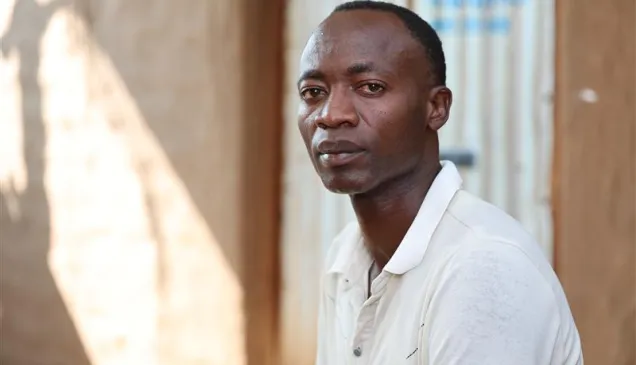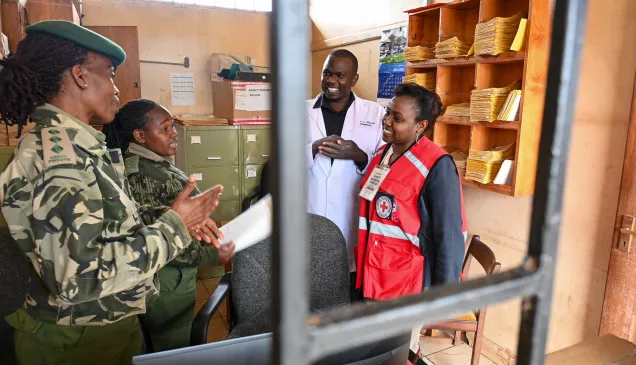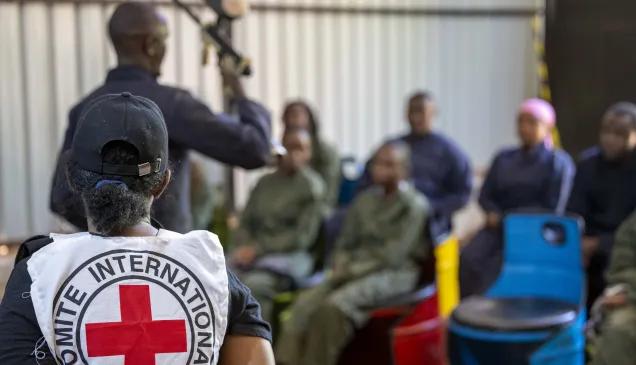Kenya: Cash transfers bringing relief to drought prone communities
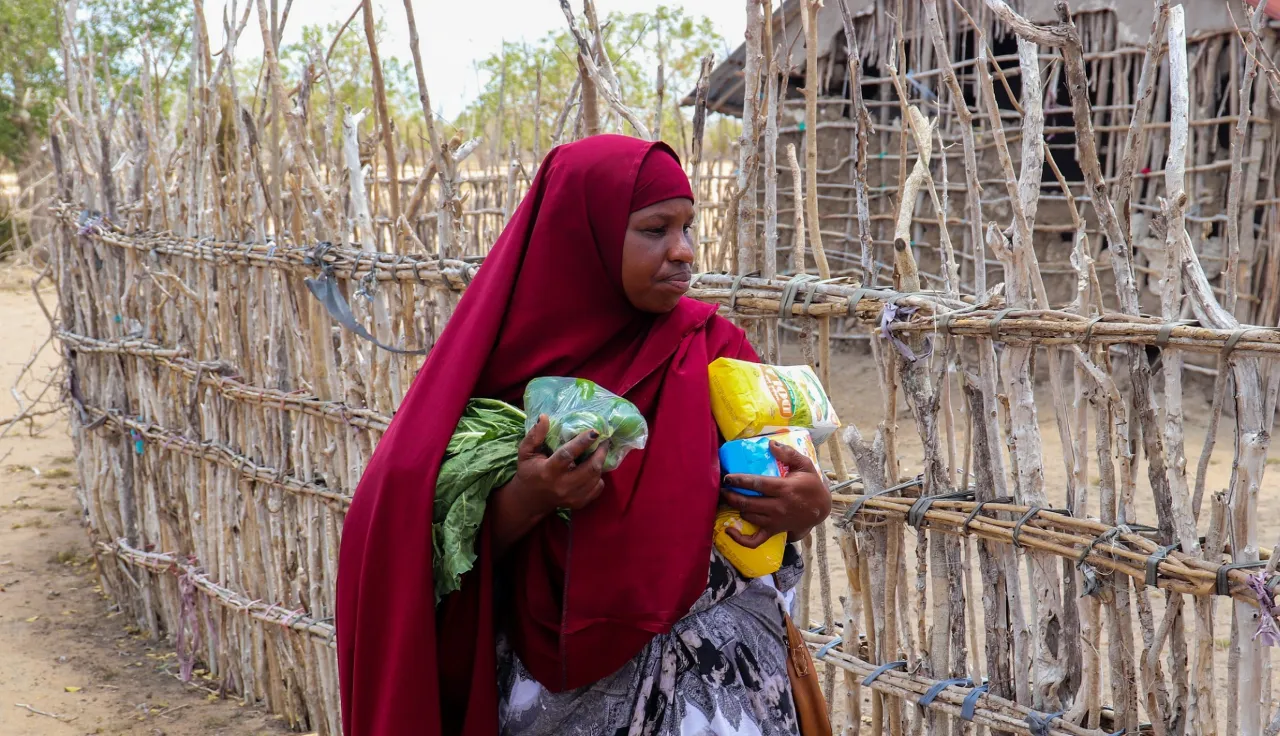
Garissa town in arid Northern Kenya, is characterized by harsh, dry conditions, made unbearable for many pastoralists by the prolonged drought. It has not rained in months and the water pans which used to be a water source for communities have dried up. So have the shallow wells. Residents have to walk long distances in search of water for their livestock.
The county of Garissa, along with other three counties bordering Somalia – Lamu, Wajir and Mandera – have been hit hard by the worst drought in decades. This is starkly evident at the weekly Garissa livestock market - one of the largest in East Africa; cows are gaunt and weak, one dies right in front of its owner who is trying to sell it to salvage it from the harsh climate.
In Ijara sub-county 200 kilometers south from Garissa, the situation is the same. The little water left in the pans has turned a greenish-brown hue as it is shared by both humans and animals, who often dirty the water as they wade in to drink. There are hardly alternative options from where to source water.
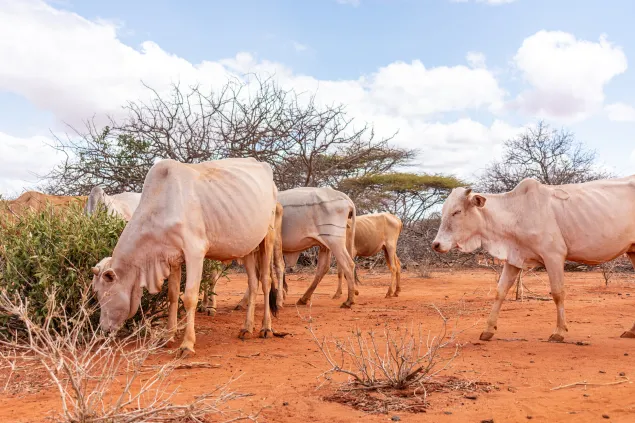
Livestock owners in drought areas like Garissa are having to sell off their cattle to save them from starvation.
The water from the pans and shallow wells is also used to clean clothes and take a bath. The only clean water they have is reserved for drinking. Villagers come together and collect contributions to pay costs for a water browser to bring clean water for their drinking needs. The truck does not come daily, not even weekly because there is often no money to buy the water itself.
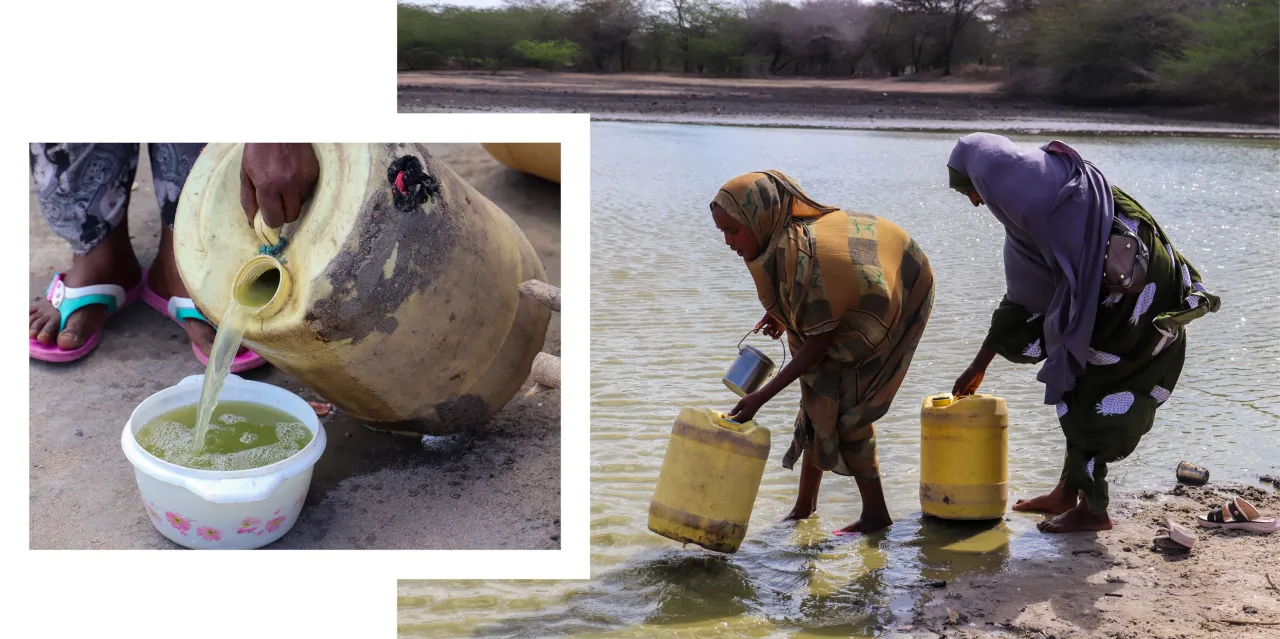
Residents of Ijara get water for domestic use at the local water pan. The water is a slimy green and not fit for drinking but is used to cook meals as they do not have alternative sources.
It is a long walk in the scorching sun. Sahara Farah is happily received by her four children who are excited that today she is carrying goods home – some flour and vegetables for the evening meal. Sahara is a recipient of a Kshs 10,600 (around 85 USD) cash transfer program sponsored by the ICRC as part of drought response in the area. The community presents a list of those who are most in need who the Kenya Red Cross thereafter vets to ascertain that they are the most vulnerable in the area. More than 500 families have received the multipurpose cash grant which they use to purchase food, water, and other needs amongst the affected communities in Garissa, Mandera, Wajir and Lamu counties.
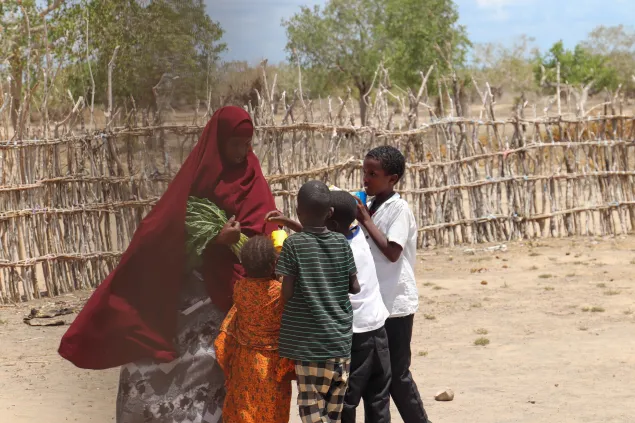
Sahara arrives at her home and is received by her children
From the cash transfer she received, Sahara has to apportion the money; some for home needs to buy food, to offset school fees balance and finally to get some drinking water for the home. She is grateful that they have something to look forward to, a full meal today and some more for the next few days. As a small-scale vegetable seller, Sahara notes that there are fewer customers now as most do not have money to purchase food. They are surviving on essentials only, while other needs like school fees and urgently needed household items remain unmet until they get support such as the cash grants.
Sahara is one of the more fortunate ones; recent statistics from the county authorities state that there are 378,000 people in Garissa alone, in need of urgent humanitarian support.
The community has been grateful for the support as it has meant that they can get clean drinking water, purchase much needed commodities and also, feed their livestock, which is the family's main source of wealth in that area. Over 60,000 people have received support of one kind or other from the Red Cross since March this year across Garissa, Lamu, Wajir and Mandera counties.
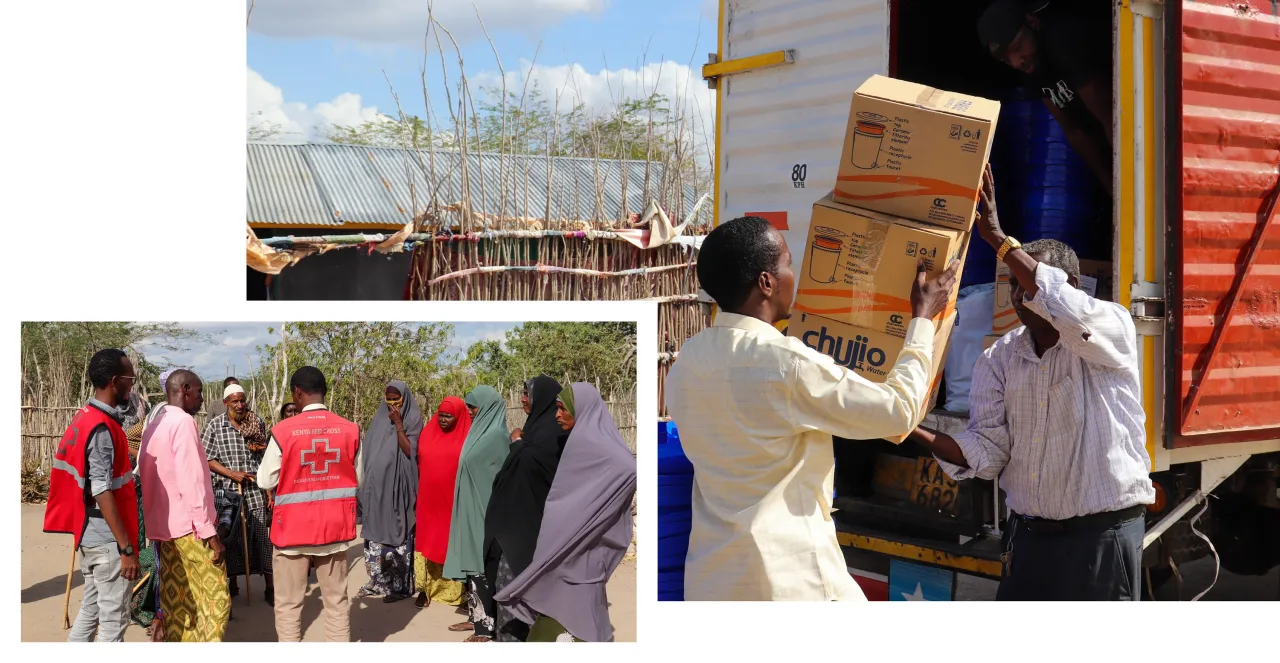
Red Cross distributes and demonstates how to use water filters to the local residents
ICRC Interventions:
The Red Cross distributed ceramic water filters to 2000 households in Lamu, Garissa, Mandera and Wajir areas. The filters screen and remove microbes and odor from water improving the condition of the water. 12 water points will have been rehabilitated by the end of this year in these areas.
Over the last 4 months, the ICRC distributed range cubes to 5,000 livestock farmers hardest hit in 4 counties – Garissa, Wajir, Mandera and Lamu. The range cubes have been a lifeline for the farmers as they increase the nutritional content of the livestock as there is nowhere to source for feeds due to the drought.
2,000 Households have received multi-purpose cash assistance to meet their essential needs. Another 500 Households received seeds adapted to the local climate to improve their crop production.
Article written by Anne Mucheke/ICRC

